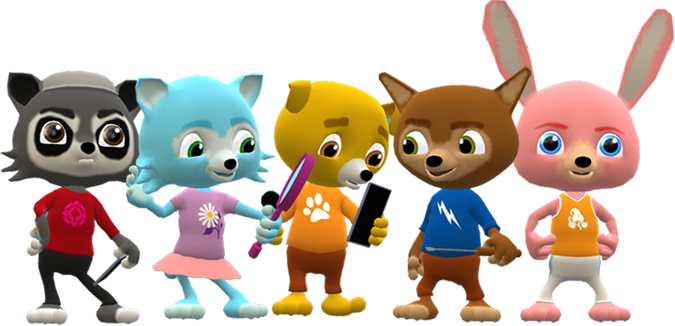How Moral Storytelling in Interactive Kids' Learning Shows Shapes Tomorrow's Leaders
Posted on 06 November 2024 by FablePlayhouse - 3 min
Interactive learning shows have become a staple for modern education, engaging young minds by immersing them in stories that combine entertainment with education. But beyond learning the ABCs or basic math, these shows often incorporate moral storytelling that plays a crucial role in developing a child's character and decision-making skills.
This article explores how moral storytelling in interactive kids' learning shows not only captivates young audiences but also instills essential values that shape them into thoughtful, empathetic individuals.
Encourages Empathy and Compassion Interactive shows like "Daniel Tiger's Neighborhood" use relatable characters who face everyday challenges, teaching children to put themselves in others' shoes. Through scenarios that require understanding and kindness, kids learn the importance of empathy. For example, when Daniel Tiger helps a friend in need, children witness firsthand the joy of helping others, which research shows can increase emotional intelligence and social competence.
Fosters Problem-Solving Skills Programs such as "Blue's Clues & You!" present young viewers with problems that they must help solve. This interactive format encourages children to think critically and explore different solutions. By solving puzzles alongside their favorite characters, kids realize that challenges are opportunities for growth—a mindset crucial for success both in school and in life.
Teaches the Consequences of Actions Shows like "Paw Patrol" demonstrate cause and effect through the pups' adventures, highlighting the outcomes of their decisions. Children learn that their choices have consequences, which is vital in developing a sense of responsibility. With studies indicating that understanding consequences can lower the likelihood of risky behavior, these lessons are invaluable.
Enhances Cultural Awareness and Inclusivity Interactive shows often introduce diverse characters and settings, fostering cultural awareness among young viewers. For instance, "Mira, Royal Detective," set in a fantastical Indian-inspired world, encourages respect for different cultures and traditions. By experiencing varied perspectives, children grow more inclusive and accepting of differences—a trait essential in our globalized world.
Instills Values of Honesty and Integrity Honesty is a recurring theme in many children's shows, including "Arthur." Characters regularly face dilemmas where truthfulness is tested, teaching kids the value of honesty. When children see positive outcomes resulting from honest actions, they are more likely to adopt these behaviors themselves. According to developmental psychologists, stories about honesty can significantly influence a child's moral development.
Builds Confidence and Independence Interactive storytelling empowers children by giving them a role in the narrative. In shows like "Dora the Explorer," where viewers help Dora make choices and solve problems, children build confidence in their abilities. This empowerment encourages independence, as kids learn that they are capable of making decisions and contributing to outcomes.
Download Fable Playhouse Today Incorporating moral storytelling into interactive kids' learning shows does more than entertain—it equips children with the values and skills needed to become compassionate, responsible, and capable adults.
By engaging with these stories, children not only enjoy learning but also develop a moral compass to guide them through life's challenges. Encourage your little ones to watch shows that offer these enriching experiences, and see how they blossom into thoughtful leaders of tomorrow.




